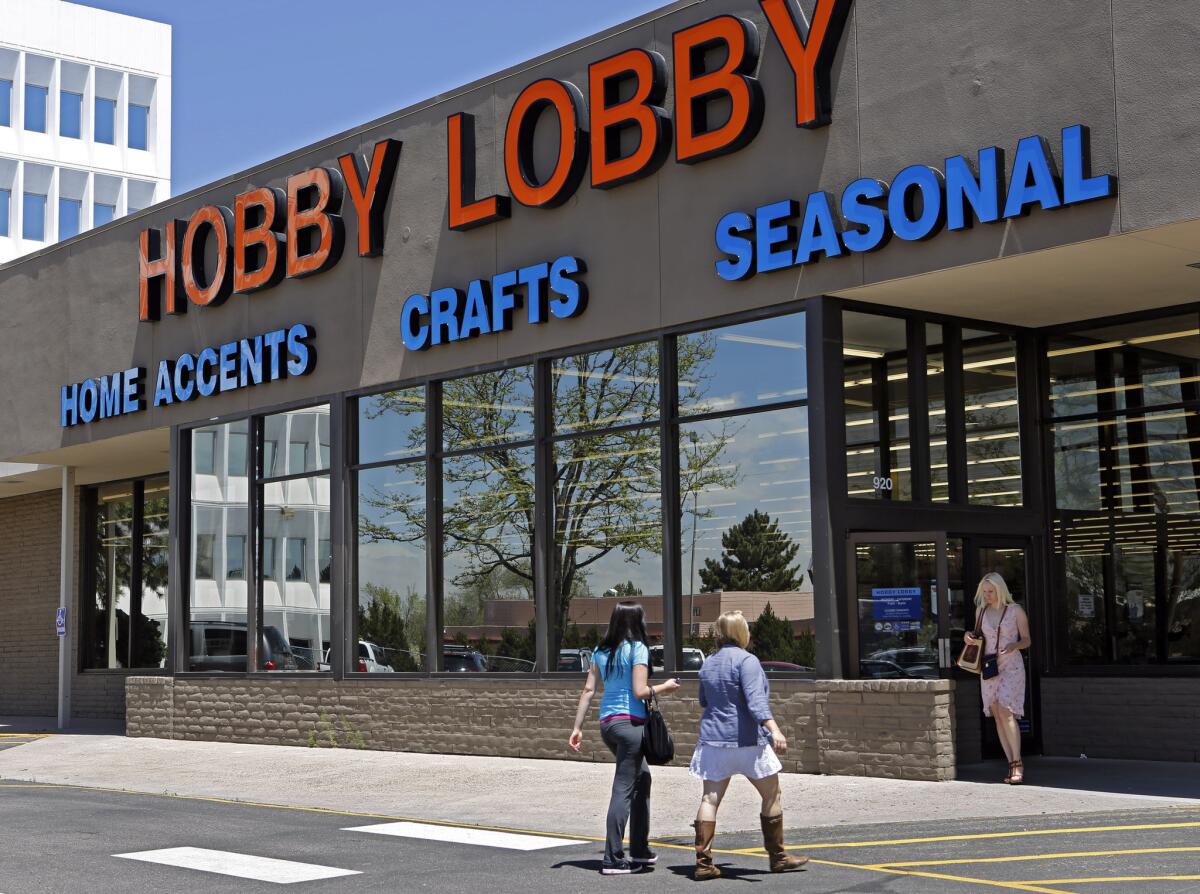Poll: Hobby Lobby vs. the contraception mandate -- who’s right?

- Share via
The Supreme Court settled one of the biggest legal fights over the Patient Protection and Affordable Care Act (a.k.a. Obamacare) by ruling last year that its requirement that virtually every adult American obtain insurance was constitutional. But several other fights are ongoing, including an equally bitter one over the law’s requirement that employers include free contraception in their insurance plans. A Denver appeals court handed the law’s opponents a victory Thursday on the latter issue, but it may just set the stage for a return to the Supreme Court.
Religious organizations have made the case that the 1st Amendment and a federal law known as the Religious Freedom Restoration Act, or RFRA, exempt them from having to cover contraception. There is a tradition of exempting churches and other religious organizations from federal mandates, including some provisions of the Civil Rights Act, and the Obama administration has tried to craft an exemption on contraception that would satisfy these groups without denying their employees access to free contraception. That effort has satisfied some religious organizations but not others, notably the Roman Catholic Church.
Some opponents of the Affordable Care Act have made a much more sweeping argument: that for-profit companies whose owners have religious objections to contraception or abortion also should be able to opt out of the contraceptive mandate. On Thursday, the U.S. 10th Circuit Court of Appeals in Denver essentially accepted this argument in a case involving two businesses owned by members of a single family. One is Hobby Lobby, a “biblically founded” chain of hobby and craft stores with 13,000 full-time employees eligible for health insurance. The other is a Christian bookstore chain with 400 employees.
The RFRA says that a “person” can seek to opt out of a law if it would “substantially burden” the exercise of his or her religion. But the government can force compliance if the law furthers a compelling government interest and is narrowly tailored to achieve that objective.
The appeals court came to several questionable conclusions that the Supreme Court should address. One is the assertion that for-profit corporations are persons under the RFRA (shades of Citizens United). Another is that Hobby Lobby is entitled to opt out of the mandate because the government has exempted churches and small businesses. As lawyers say, that would allow exceptions to swallow the rule.
The Times addressed the issue of exemptions for commercial enterprises in an editorial published last July. We wrote:
“Our view is that church-affiliated charitable and educational institutions should offer contraceptive coverage, even if they are self-insured. Not all of their employees are Catholic, and even many Catholics make a personal choice to use contraceptives. The Obama administration’s decision to provide only a narrow religious exemption is the right one. That said, religious colleges and hospitals are at least part of a church’s religious mission, so the discussion makes sense. The same cannot be said for a company that sells heating, ventilation and air conditioning services.”
Or a chain of hobby shops.
The editorial concluded: “Reasonably interpreted, neither the Religious Freedom Restoration Act nor the 1st Amendment provides an escape hatch for profit-making businesses from the ACA, any more than it exempts them from civil rights laws.”
That is how the Supreme Court should rule if and when the Hobby Lobby case comes before it. That’s our opinion, at least. But what’s yours? Take our rigorously unscientific poll, leave a comment or do both.
ALSO:
The Prop. 8 ruling, in lay person’s terms
Uber, Sidecar and Lyft: Don’t call them cabs
Texas just won’t stop messing with abortion rights
Follow Michael McGough and Jon Healey on Twitter @MichaelMcGough3 and @jcahealey
More to Read
A cure for the common opinion
Get thought-provoking perspectives with our weekly newsletter.
You may occasionally receive promotional content from the Los Angeles Times.








